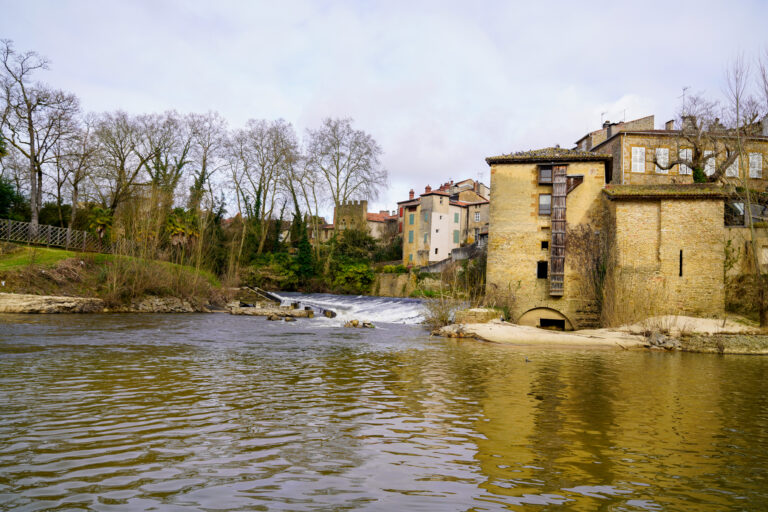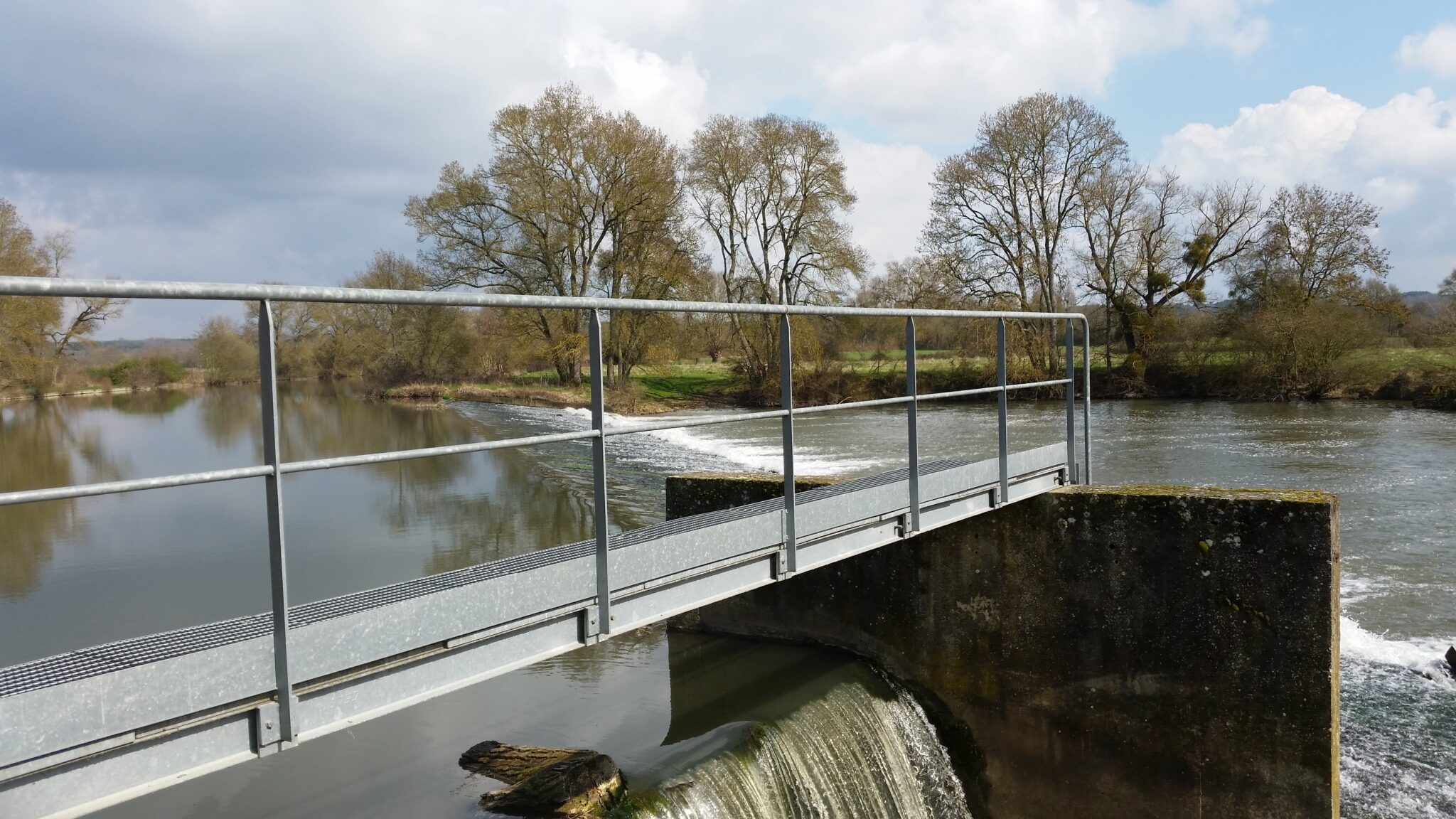Petite hydroélectricité
Exploiter la force des rivières pour produire de l’énergie durable.
Transformer le patrimoine d’hier
La France est le 3e pays européen producteur d’hydroélectricité, derrière la Norvège et la Suède. La convention pour le développement de l’hydroélectricité́ durable, signée en 2010 prévoit une production supplémentaire dans les années à venir. Toutefois, en France, les anciens moulins hydrauliques sont laissés à l’abandon ou détruits. Un potentiel de transition énergétique énorme est identifié sur quelques 60 000 ouvrages hydrauliques aujourd’hui inexploités.


Rénover plutôt que détruire
L’ADN du groupe Enerlis est de privilégier systématiquement la préservation et la valorisation du patrimoine. Via notre société dédiée Icauna, nous donnons une seconde vie aux ouvrages hydrauliques existants en remettant à profit l’énergie des rivières, dans une perspective de production d’énergie 100% renouvelable. Nous n’intervenons que sur des sites existants afin d’éviter toute nouvelle perturbation dans la continuité des cours d’eau, et garantir le respect des équilibres de la faune et de la flore tels qu’ils se sont organisés autour de ces équipements depuis des décennies.
L’accompagnement Enerlis
Nous avons développé depuis plusieurs années des compétences indispensables à ce type de projet :
Expertise technique
Enerlis œuvre à la rénovation de centrales hydroélectriques de petite puissance (entre 60 et 1 000 kW) afin de produire une électricité verte et locale, sans porter atteinte à la biodiversité ni au paysage. Nous intervenons pendant et après les travaux et nous nous engageons sur la qualité de l’ouvrage et sur les résultats. Notre équipe dédiée se déplace partout en France.
Expertise juridique
Forts de notre expérience, nous prenons en charge toutes les procédures administratives et juridiques contraignantes : droit d’eau, contrat d’obligation d’achat, raccordement au réseau de distribution public.
Expertise financière
Le groupe Enerlis s’est spécialisé dans le financement de la transition énergétique. Grâce à son pôle Aides & Subventions et au tiers-financement, nous sommes capables de vous accompagner dans le financement de la réhabilitation de votre centrale.
Une question sur la petite hydroelectricité ?
Les avantages d'UNE Petite Hydro-Électricité
Production locale
Production locale
En fonction du mode de consommation choisi (autoconsommation avec revente du surplus ou revente totale de la production sur le réseau), l’hydroélectricité produite localement est ensuite consommée sur votre site, redistribuée vers des sites à proximité ou totalement revendue sur le réseau électrique.
Rendement
Rendement
La modernisation et la remise en exploitation d’anciennes turbines hydrauliques permettent de produire de l’énergie renouvelable sans interruption grâce à la force des courants, contrairement aux centrales photovoltaïques qui ne fonctionnent pas la nuit.
Revenu complémentaire
Revenu complémentaire
En choisissant de revendre la totalité de la production de la centrale au réseau, le client s’assure d’un revenu additionnel grâce à un prix de revente stable sur toute la durée de son contrat.
Continuité écologique
Continuité écologique
En adoptant une démarche respectueuse de la biodiversité et du paysage, nous pouvons concevoir des projets n’induisant pas, ou très peu, de dommages à la faune aquatique et mettre en place des systèmes de traitement des sédiments qui protègent l’environnement.
Le mot de l'expert
L'hydroélectricité, un héritage renouvelé au service de demain
FAQ
Une question ?
Une turbine de moulin à eau utilise la force de l’eau en mouvement pour convertir l’énergie cinétique en énergie mécanique. L’eau est dirigée vers la turbine à travers un canal, où elle frappe les pales ou la roue de la turbine. Cette action fait tourner la turbine, qui est reliée à un générateur électrique. Le générateur transforme alors l’énergie mécanique en électricité par induction. Cette électricité produite est ensuite distribuée pour une utilisation locale ou intégrée au réseau électrique.
En amont du projet, notre équipe prend contact avec vous pour vérifier quelques éléments nécessaires à l’étude du projet : la présence d’un droit d’eau sur le moulin, les dimensions des vannes, la hauteur de la chute d’eau, le débit journalier de l’eau… Le but est de vérifier avec vous la future puissance de la centrale et la faisabilité de la rénovation du moulin. Nous vous conseillons de prendre contact rapidement avec nos experts pour un diagnostic détaillé et fiable.
En France, il existe deux options pour revendre la production d’électricité. Le client peut choisir de revendre sa production directement sur le marché, c’est-à-dire sélectionner la meilleure offre commerciale pour vendre l’électricité à un intermédiaire, qui se chargera de la revendre via la bourse de l’électricité Epex.
Sinon, le client peut conclure un contrat d’obligation d’achat avec un acheteur obligé (EDF, Enercoop, Électricité de Strasbourg…), afin de se faire racheter sa production, en partie ou en intégralité, au tarif fixé par l’État et précisé dans le contrat, souvent supérieur au prix du marché de l’électricité. Le mécanisme d’obligation d’achat est avantageux pour le producteur d’hydroélectricité, puisque le prix, sécurisé par contrat, reste stable dans le temps.